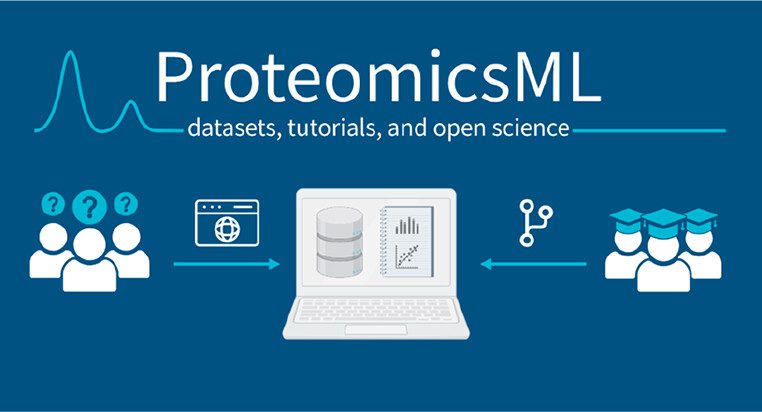TL;DR:
- ProteomicsML simplifies proteomics dataset access for machine learning.
- It promotes AI and machine learning applications in proteomics.
- Offers user-friendly data formats and tutorials for easy data processing.
- Provides openly available datasets for machine learning training.
- Empowers researchers with educational materials on dataset utilization.
- Encourages community contributions for knowledge sharing.
- A comprehensive resource for machine learning in mass spectrometry proteomics.
- Developed by a collaborative effort of leading institutions.
Main AI News:
In the ever-evolving landscape of scientific exploration, ProteomicsML stands as a beacon of innovation and collaboration. This free online resource has set its sights on simplifying the intricate and time-consuming process of making proteomics datasets readily available to train machine learning algorithms. In doing so, ProteomicsML serves as a central hub, ushering in a new era of accessibility and reproducibility in proteomics research.
Juan Antonio Vizcaino, Team Leader of Proteomics at EMBL’s European Bioinformatics Institute (EMBL-EBI), underscores the community-driven nature of ProteomicsML. “ProteomicsML emerged as a community-driven project with a clear mission,” he explains. “Our aim is to champion the application of AI and machine learning in mass spectrometry-based proteomics data. We are committed to creating and documenting training datasets and tutorials, thereby transforming ProteomicsML into an indispensable resource for newcomers and seasoned professionals alike.”
The Challenge of Proteomics Data Processing
Preparing proteomics data for machine learning is a formidable challenge. Labs employ diverse methodologies, leading to a fragmentation of data formats that hinders sharing and utilization. ProteomicsML rises to this challenge by providing a user-friendly online platform replete with easily accessible data formats and comprehensive tutorials that bridge gaps across the field.
ProteomicsML’s commitment extends beyond simplifying data access. It actively supports the application of machine learning to proteomics data by offering openly available datasets tailored for training machine learning algorithms. Additionally, it provides a treasure trove of educational materials, empowering researchers to unlock the full potential of these datasets. The resource encompasses a diverse array of data types, ranging from ion fragmentation intensity and ion mobility to retention time, protein detectability, and more. As a result, ProteomicsML emerges as an indispensable tool for both the proteomics community and AI practitioners.
A Living Resource, Nurtured by the Community
ProteomicsML is not static; it’s designed to evolve alongside the ever-advancing field of proteomics. It actively encourages community contributions, enabling researchers to share their data and tutorials on data handling and machine learning methodologies. In this way, ProteomicsML fosters a collaborative environment where knowledge is shared, and expertise is cultivated.
Moreover, ProteomicsML serves as an all-encompassing resource for those harnessing machine learning methods to analyze mass spectrometry proteomics data. With a wealth of datasets covering liquid chromatography and mass spectrometry peptide properties, it provides a welcoming entry point for newcomers, helping them embark on their journey in the field.
ProteomicsML: A Vision Realized
The inception of ProteomicsML was made possible through the collective efforts of esteemed institutions, including the University of Southern Denmark (SDU), CompOmics, Leiden University Medical Center (LUMC), PeptideAtlas, the National Institute of Standards and Technology (NIST), the PRoteomics IDEntification database (PRIDE), and MSAID. It was born from a workshop convened at the Lorentz Center in Leiden, highlighting the power of collaboration and the pursuit of excellence in proteomics research.
Conclusion:
ProteomicsML is poised to reshape the proteomics research landscape by streamlining data access and fostering collaboration. With its focus on AI and machine learning applications, user-friendly resources, and community-driven contributions, it opens up new avenues for innovation and growth in the market, making proteomics research more accessible and impactful for all stakeholders.

